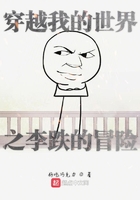The King.
The first moment of surprise over, D'Artagnan reperused Athos's note.
"It is strange," said he, "that the king should send for me."
"Why so?" said Raoul; "do you not think, monsieur, that the king must regret such a servant as you?"
"Oh, oh!" cried the officer, laughing with all his might; "you are poking fun at me, Master Raoul. If the king had regretted me, he would not have let me leave him. No, no; I see in it something better, or worse, if you like."
"Worse! What can that be, monsieur le chevalier?"
"You are young, you are a boy, you are admirable. Oh, how I should like to be as you are! To be but twenty-four, with an unfortunate brow, under which the brain is void of everything but women, love, and good intentions. Oh, Raoul, as long as you have not received the smiles of kings, the confidence of queens; as long as you have not had two cardinals killed under you, the one a tiger, the other a fox; as long as you have not - But what is the good of all this trifling? We must part, Raoul."
"How you say the word! What a serious face!"
"Eh! but the occasion is worthy of it. Listen to me. I have a very good recommendation to tender you."
"I am all attention, Monsieur d'Artagnan."
"You will go and inform your father of my departure."
"Your departure?"
"_Pardieu!_ You will tell him I am gone into England; and that I am living in my little country-house."
"In England, you! - And the king's orders?"
"You get more and more silly: do you imagine that I am going to the Louvre, to place myself at the disposal of that little crowned wolf-cub?"
"The king a wolf-cub? Why, monsieur le chevalier, you are mad!"
"On the contrary, I never was so sane. You do not know what he wants to do with me, this worthy son of _Louis le Juste!_ - But, _mordioux!_ that is policy. He wishes to ensconce me snugly in the Bastile - purely and simply, look you!"
"What for?" cried Raoul, terrified at what he heard.
"On account of what I told him one day at Blois. I was warm; he remembers it."
"You told him what?"
"That he was mean, cowardly, and silly."
"Good God!" cried Raoul, "is it possible that such words should have issued from your mouth?"
"Perhaps I don't give the letter of my speech, but I give the sense of it."
"But did not the king have you arrested immediately?"
"By whom? It was I who commanded the musketeers; he must have commanded me to convey myself to prison; I would never have consented: I would have resisted myself. And then I went into England - no more D'Artagnan.
Now, the cardinal is dead, or nearly so, they learn that I am in Paris, and they lay their hands on me."
"The cardinal was your protector?"
"The cardinal knew me; he knew certain particularities of me; I also knew some of his; we appreciated each other mutually. And then, on rendering his soul to the devil, he would recommend Anne of Austria to make me the inhabitant of a safe place. Go, then, and find your father, relate the fact to him - and adieu!"
"My dear Monsieur d'Artagnan," said Raoul, very much agitated, after having looked out the window, "you cannot even fly!"
"Why not?"
"Because there is below an officer of the Swiss guards waiting for you."
"Well?"
"Well, he will arrest you."
D'Artagnan broke into a Homeric laugh.
"Oh! I know very well that you will resist, that you will fight, even; I know very well that you will prove the conqueror; but that amounts to rebellion, and you are an officer yourself, knowing what discipline is."
"Devil of a boy, how logical that is!" grumbled D'Artagnan.
"You approve of it, do you not?"
"Yes, instead of passing into the street, where that idiot is waiting for me, I will slip quietly out at the back. I have a horse in the stable, and a good one. I will ride him to death; my means permit me to do so, and by killing one horse after another, I shall arrive at Boulogne in eleven hours; I know the road. Only tell your father one thing."
"What is that?"
"That is - that the thing he knows about is placed at Planchet's house, except a fifth, and that - "
"But, my dear D'Artagnan, rest assured that if you fly, two things will be said of you."
"What are they, my dear friend?"
"The first, that you have been afraid."
"Ah! and who will dare to say that?"
"The king first."
"Well! but he will tell the truth, - I am afraid."
"The second, that you knew yourself guilty."
"Guilty of what?"
"Why, of the crimes they wish to impute to you."
"That is true again. So, then, you advise me to go and get myself made a prisoner in the Bastile?"
"M. le Comte de la Fere would advise you just as I do."
"_Pardieu!_ I know he would," said D'Artagnan thoughtfully. "You are right, I shall not escape. But if they cast me into the Bastile?"
"We will get you out again," said Raoul, with a quiet, calm air.
"_Mordioux!_ You said that after a brave fashion, Raoul," said D'Artagnan, seizing his hand; "that savors of Athos, distinctly. Well, I will go, then. Do not forget my last word."
"Except a fifth," said Raoul.
"Yes, you are a fine boy! and I wish you to add one thing to that last word."
"Speak, chevalier!"
"It is that if you cannot get me out of the Bastile, and I remain there –
Oh! that will be so, and I shall be a detestable prisoner; I, who have been a passable man, - in that case, I give three-fifths to you, and the fourth to your father."
"Chevalier!"
"_Mordioux!_ If you will have some masses said for me, you are welcome."
That being said, D'Artagnan took his belt from the hook, girded on his sword, took a hat the feather of which was fresh, and held his hand out to Raoul, who threw himself into his arms. When in the shop, he cast a quick glance at the shop-lads, who looked upon the scene with a pride mingled with some inquietude; then plunging his hands into a chest of currants, he went straight to the officer who was waiting for him at the door.
"Those features! Can it be you, Monsieur de Friedisch?" cried D'Artagnan, gayly. "Eh! eh! what, do we arrest our friends?"
"Arrest!" whispered the lads among themselves.
"Ja, it is I, Monsieur d'Artagnan! Good-day to you!" said the Swiss, in his mountain _patois_.















